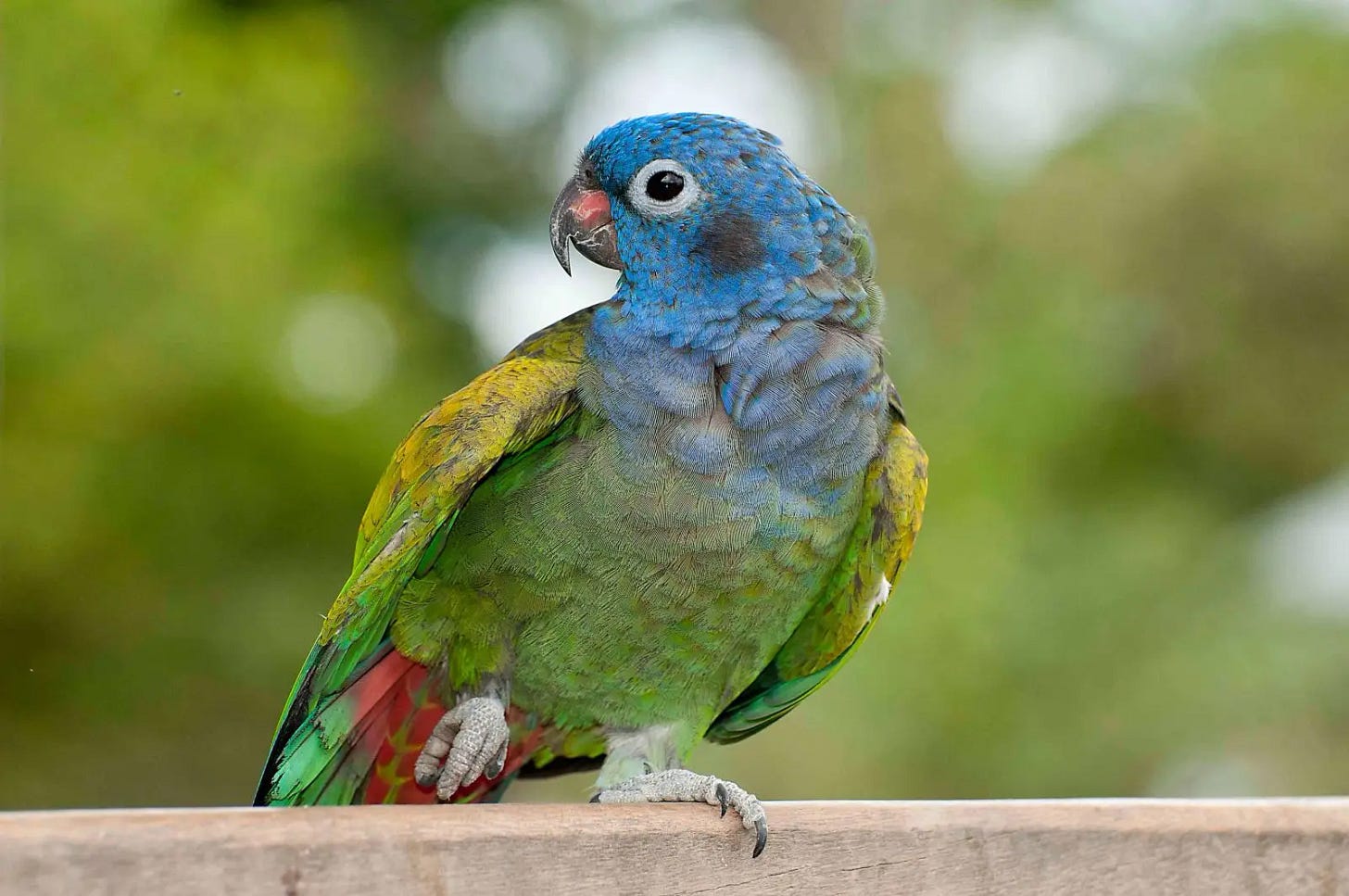Exotic pets 'damaging biodiversity' says IUCN
Keeping wild animals is a cultural norm or a sign of status in several cultures around the world.
The pet trade is a threat to biodiversity and the ongoing survival of numerous species across the world. That was the conclusion of a proposal adopted by the IUCN at its conference a few weeks ago.
The body recommended the creation of a series of guidelines to help governments and law enforcement manage the international trade in exotic pets.
Keeping exotic pets is popular across the world – and is often charged by cultural traditions. In parts of Asia and the Middle East keeping big cats is seen as a status of wealth. This leads to stories about lions escaping from captivity in countries like India. Golden frogs in Panama were poached to extinction because of a belief they bought good luck.
Parrots are among the most widely kept animals, proving popular in Europe and Latin America. In Costa Rica a recent study found parrots were kept in nearly 90 per cent of households in some areas. Some pet owners may not even realise that the animal that they keep is illegal.
Habitat loss is a major factor for the survival of all species, but the pet trade, particularly when linked to illegal poaching, is also a factor. While some argue that exotic pets raise the profile of animals and encourage conservation through captive breeding, it also creates demand for animals taken from the wild.
We will be watching out to see what the IUCN comes up with.
Latin America: Some 225 people were arrested during a two-month crackdown on environmental crime, according to Interpol. Operation Madre Tierra VII took place across the region and also led to the opening of hundreds of new investigations into illegal logging, wildlife trafficking and gold mining. The most common violations were forestry-related or in the illegal wildlife trade. (AP)
USA: Spider monkeys are being smuggled into Texas from Mexico at an “alarming rate”, wildlife officials have said. Spider monkeys are protected and endangered but are highly prized as exotic pets. Customs officials said they are often promoted in social media videos showing them dressed in clothes. (Chron)
India: A pangolin-smuggling racket was broken up in Gujarat, in India. The offenders were allegedly capturing the animals in the Gir forest and attempting to sell them in major cities. One live pangolin was rescued and an amount of scales found. Pangolins are sometimes hunted for their meat, but more commonly are targeted for their scales. (Hans India)
Canada: Two shipments of lobster have been seized in recent weeks by Canadian fisheries officers. More than 100 crates were involved in the raid on a commercial plant in Nova Scotia, while more than 8,000 live lobsters were released back into the ocean. In the other raid, just over 80 crates were seized and more than 6,000 lobsters released. (CBC)
UK: Organised crime groups are making millions by illegally managing 38 million tonnes of waste a year, according to a letter from the upper house of parliament. It advised a “root and branch” review is carried out within 18 months to choke the issue. The letter was critical of the Environment Agency for failing to pursue repeated reports and use its available powers sufficiently. (The Guardian)
USA: Officers uncovered what has been called a significant illegal wildlife trafficking operation out of Los Angeles. Authorities found nine rhino horns and thousands of pieces of ivory during a raid on a local business. It is illegal to sell ivory products across California. (KTLA)
Philippines: Illegal fishing has led to another military confrontation in Philippine waters after the Navy said it had driven out some Chinese fishermen illegally operating in the area. Rubber boats were deployed and the offending boat was towed away before being allowed to leave. The fishermen were alleged to be using cyanide. (ABS)
South Africa: Law enforcement officials have changed tactics in South Africa, targeting wildlife trafficking gangs with financial investigations. A report from a government money laundering taskforce reveals how financial tracking has become a crucial part of the investigators’ toolkit. The country’s financial intelligence system recorded 439 suspicious transaction reports in the two years from January 2022 – a large increase from the 139 in the previous reporting period. (Africa Sustainability Matters)
Australia: A crackdown on illegal fishing has led to the replenishing of fish stocks of Heard Island in the Indian Ocean, according to an academic study. Researchers found increasing numbers of fish species and attributed the good news to factors including the removal of illegal fishing, better prevention of bycatch, and possible climate-driven increases in ocean productivity. (Phys)
USA: A routine traffic stop in Texas led to the discovery of more than 160 snakes, frogs and spiders hidden in a truck. Local police said that the smuggling of exotic pets has been increasing in the region. The seizure included royal pythons, milk snakes and bearded dragons, all popular in the pet trade. (News4)
Thank you so much for reading Wild Crime. This is a fully reader-supported publication with no outside funding. Paid subscriptions make it possible for us to dig deeper and pursue investigations that take time and resources. But even if you’re reading for free, you’re helping to keep this work alive, and I’m grateful for that.
If you’d like to support Wild Crime further, consider becoming a paid subscriber or sharing this newsletter with someone who might find it interesting. Every bit of support makes a real difference.


